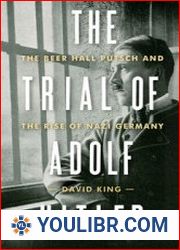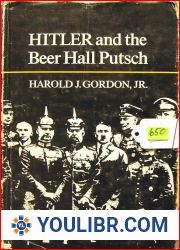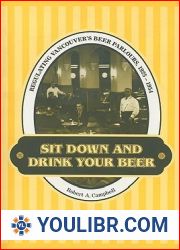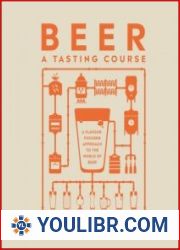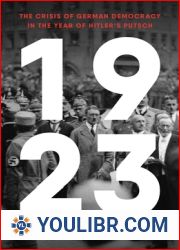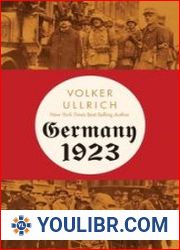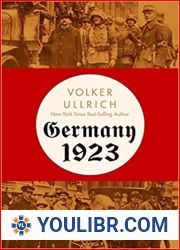
BOOKS - The Beer Hall Putsch: The History and Legacy of Adolf Hitler and the Nazi Par...

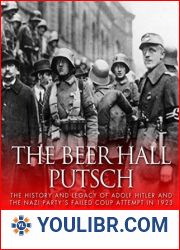
US $5.90

464597

464597
The Beer Hall Putsch: The History and Legacy of Adolf Hitler and the Nazi Party's Failed Coup Attempt in 1923
Author: Charles River Editors
Year: January 21, 2015
Format: PDF
File size: PDF 1.5 MB
Language: English
Year: January 21, 2015
Format: PDF
File size: PDF 1.5 MB
Language: English
*Includes pictures*Details Hitler's rise to the head of the Nazi party before the putsch*Explains how the putsch transpired and failed*Includes a bibliography for further reading*Includes a table of contents"You can see that what motivates us is neither self-conceit or self-interest, but only a burning desire to join the battle in this grave eleventh hour for our German Fatherland ... One last thing I can tell you. Either the German revolution begins tonight or we will all be dead by dawn!" - Hitler"I cannot remember in my entire life such a change in the attitude of a crowd in a few minutes, almost a few seconds ... Hitler had turned them inside out, as one turns a glove inside out, with a few sentences. It had almost something of hocus-pocus, or magic about it." - Dr. Karl Alexander von MuellerIt is often claimed that Adolf Hitler rose to power in Germany through democratic means, and while that is a stretch, it is true that he managed to become an absolute dictator as Chancellor of Germany in the 1930s through a mixture of politics and intimidation. Ironically, he had set such a course only because of the failure of an outright coup attempt known as the Beer Hall Putsch about a decade earlier.At the close of World War I, Hitler was an impoverished young artist who scrapped by through selling souvenir paintings, but within a few years, his powerful oratory brought him to the forefront of the Nazi party in Munich and helped make the party much more popular. A smattering of followers in the hundreds quickly became a party of thousands, with paramilitary forces like the SA backing them, and at the head of it all was a man whose fiery orations denounced Jews, communists and other "traitors" for bringing upon the German nation the Treaty of Versailles, which had led to hyperinflation and a wrecked economy. During the first few years of the decade, the government in Munich had actually supported the fledgling Nazi party as a counterweight against the communists, which had attempted a coup years earlier, but it would nearly come back to haunt the authorities on November 8, 1923, when Hitler and his forces attempted to start a revolution and take over the city. Backed by men like Rudolf Hess, Hermann Goering, and Ernst Rohm, Hitler and the Nazis came perilously close to succeeding, and they may have been undone only because of the SA's refusal to initiate violence against German police and Army members. By the following day, the police and Army put down the putsch, which climaxed with a short firefight in which the man standing next to Hitler was killed by a shot through the lungs, a bullet that came close to striking the future Fuhrer in the torso. However, despite being the instigator and being arrested in its aftermath as a traitor, the political atmosphere not only saved Hitler from a potential death sentence but practically made him a sympathetic figure. He would end up serving less than a year in prison (during which he dictated Mein Kampf to Hess), and as soon as he was released he went back to working with the Nazis, now convinced that the path to power lay through peaceful means. The Beer Hall Putsch chronicles the history of the Nazis' failed coup attempt. Along with pictures of important people, places, and events, you will learn about the Beer Hall Putsch like never before, in no time at all.







